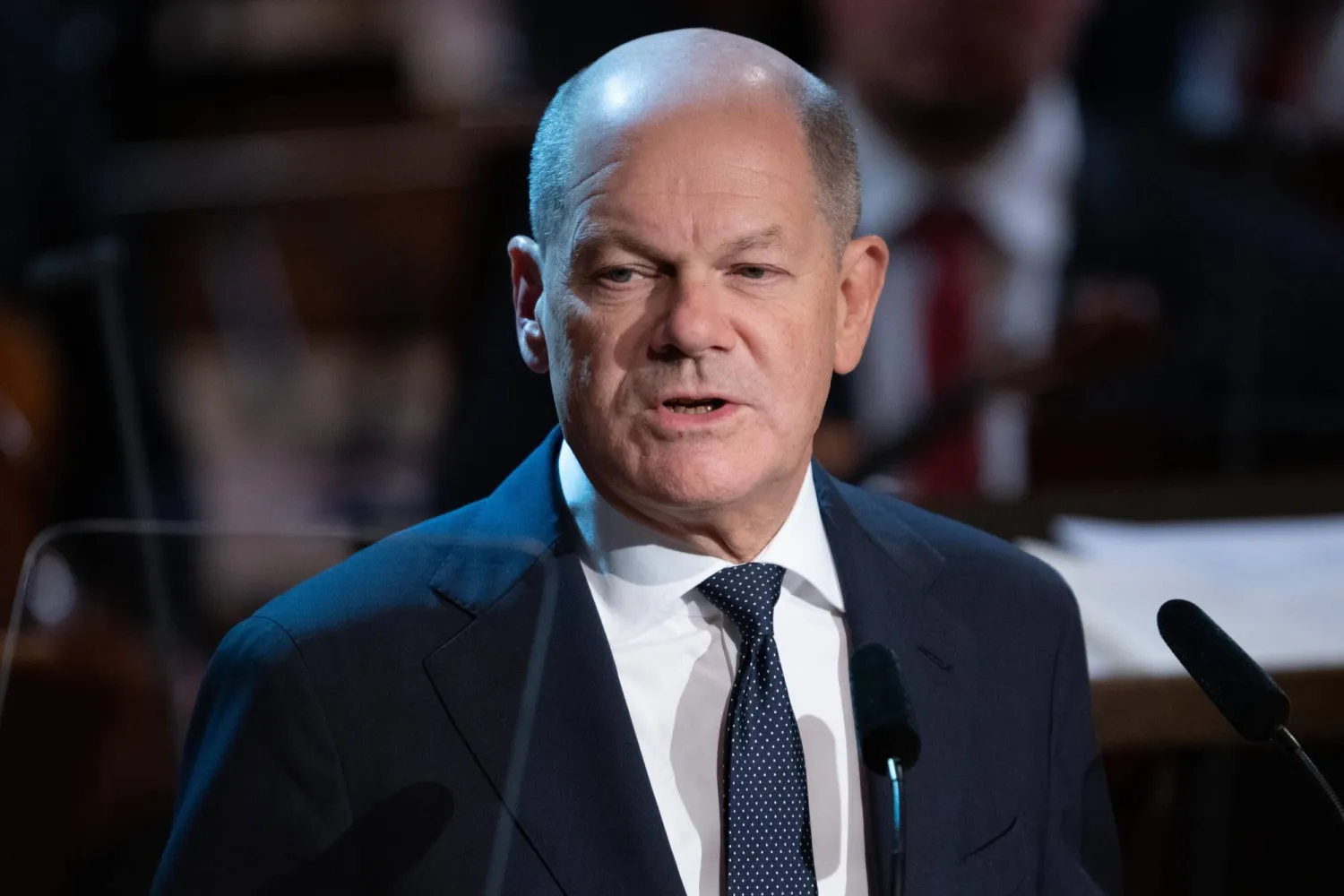German Chancellor Olaf Scholz said on Friday he wanted to deepen defense ties with New Delhi and bring the two countries' militaries closer, in comments following a meeting with Indian Prime Minister Narendra Modi.
Germany, which has not traditionally had close defense ties with India, is now pitching to join the latter's effort to wean its arms base from decades of dependence on Russia, at a time when the West seeks to counter China's growing influence, Reuters said.
"Our overall message is clear, we need more co-operation, not less," Scholz said.
"At our inter-governmental consultations with India, we also want to deepen co-operation in defense and agree to bring our militaries together."
Scholz, accompanied by most of his cabinet, is leading a high-level delegation to New Delhi, betting that greater access to the vast Indian market can reduce Germany's reliance on China.
German Thyssenkrupp is one of two bidders that have partnered with Indian firms to build six conventional submarines in India, in a deal estimated to be worth $5 billion.
The Indian Navy is expected to pick between the German company or Spain's Navantia soon.
Scholz reiterated his economy minister's comments on pushing for swift progress on talks for a free-trade pact between India and the European Union.
Earlier, Trade Minister Piyush Goyal warned that India would be unable to strike such a deal if the bloc insisted on getting access to the Asian giant's dairy industry.
The two sides initially aimed to wrap up talks on the pact by the end of 2023, but progress has been slow, with India blaming the EU for what it called "irrational" standards as one reason.
A trade deal could be concluded swiftly if sensitivities were respected on both sides, Goyal told the Asia-Pacific conference of German business in the Indian capital, attended by German Economy Minister Robert Habeck.
On Thursday, Habeck had said agriculture was the "most problematic" area in the deal talks, suggesting it would be better if the two sides focused first on the industrial sector.
Germany Looks to Strengthen Defense, Military Ties With India

09 October 2024, Saxony, Leipzig: German Chancellor Olaf Scholz speaks during the 35th anniversary of the peaceful revolution in Leipzig, at the Geandhaus. Photo: Sebastian Kahnert/dpa-Pool/dpa

Germany Looks to Strengthen Defense, Military Ties With India

09 October 2024, Saxony, Leipzig: German Chancellor Olaf Scholz speaks during the 35th anniversary of the peaceful revolution in Leipzig, at the Geandhaus. Photo: Sebastian Kahnert/dpa-Pool/dpa
لم تشترك بعد
انشئ حساباً خاصاً بك لتحصل على أخبار مخصصة لك ولتتمتع بخاصية حفظ المقالات وتتلقى نشراتنا البريدية المتنوعة







